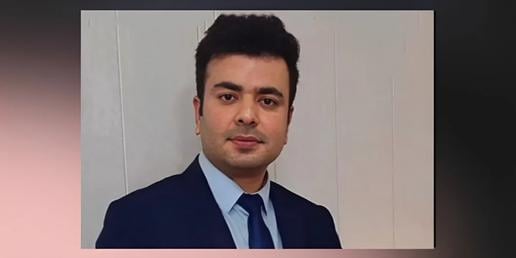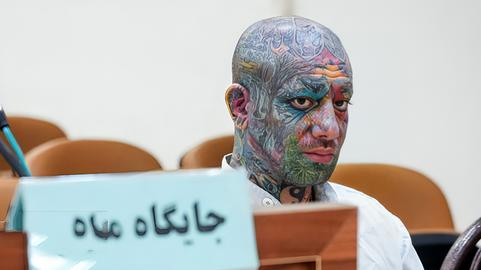The coach parked outside the small stadium in the picturesque village of Hrasnica near Sarajevo. The boys in blue shirts got off the coach, almost in silence, their heads down to their chests. This was a rare moment. Here, Bosnia-Herzegovina’s football team—the Dragons—are super stars, the nation's pride. People anticipate their arrival wherever they go, waiting to shake their hands or take their photographs, singing traditional football songs all the while.
But not today.
When Bosnia-Herzegovina qualified for the World Cup, its first major tournament in history, the country was euphoric. But on Thursday, May 15th, as the team began its preparations for the competition, coach Safet Sušić gathered his men almost in silence. The country was focusing on more important things.
In recent days, Bosnia-Herzegovina has witnessed one of the biggest catastrophes since the war ended in 1995. River levels rose dramatically, and the worst floods in a 100 years have left towns and villages across the country devastated. Whole communities have been cut off, with landslides burying houses and people being left without electricity . More than 17 deaths have been reported, and there are fears that the death toll will increase.
"It is difficult to talk about football in moments like this", says Asmir Begović, Stoke City goalkeeper and Bosnian number one. "Our hearts are with the people that suffer".
This country learned how to suffer in the hardest, most extreme way. Bosnia and Herzegovina gained independence in 1992, following a referendum in which the majority voted for secession from former socialist Yugoslavia. It was a trigger for a horrific war that cost more than 100,000 lives, destroyed the country and divided its people. In 1995, the Dayton Peace Agreement ended the conflict, but left the country with a self-destructive, corrupt political system and an economic deep hole. Nineteen years later, with an unemployment rate of a shocking 44 per cent, 48 per cent of the population live on the edge of poverty. Bosnia is one of the poorest countries in the world.
“People here don’t have many reasons to be happy”, explains Begović. “Most of them struggle to make ends meet”. But, when Stuttgart’s striker Vedad Ibišević scored the decisive goal in the last match of the qualifiers in Lithuania, Bosnia and Herzegovina was the happiest place on earth. That night, more than 50,000 people gathered on the streets of Sarajevo to welcome the players.
“This was the most beautiful moment in our careers. We did not win a trophy, we just qualified for the tournament, but the explosion of emotion among our supporters and the players was unreal. Many people cried: players, journalists, fans. The team is their only joy and we feel obliged to give out everything we can to bring them at least some happiness”.
Even though almost all the players—the only exception being third-choice keeper Asmir Avdukić —live and play outside of the country, it is no wonder that they feel a special bond with supporters. Most of them have their own stories of struggling to survive. Begović himself was a five-year old kid when he and his family were forced to leave his hometown of Trebinje. Ibišević suffered a similar fate, escaping the genocide in east Bosnia at the very last moment before moving to the United States.
Although this bond is undeniably an advantage, it also can bring more pressure on the team’s already large burden. Every move the team makes is in the public eye. Expectations are high and getting higher all the time. When Safet Sušić, the Bosnian manager, decided to select his nephew Tino, who plays as a midfielder in the mediocre team Hajduk Split in Croatia, and refused to explain his choice, he was caught up in a whirl of criticism. In many ways, the decision split the nation into two—those that support him and those that accuse him of nepotism.
And Sušić has not managed to build any bridges. The team's performance was poor during last two friendlies against Argentina and Egypt. Things did not improve when he accused Edin Džeko and captain Emir Spahić of “interfering in his selection.” This has obviously affected the atmosphere, but Sušić keeps saying that all problems have been solved. The team is fit and will demonstrate its incredible spirit during the World cup.
The general mood has been somewhere between hyper-euphoria and skepticism. Fans who think with their heart—and this is the majority of the supporters—await the World cup with huge expectations. People tend to believe that Bosnia is capable of catching Argentina off-guard and beating Nigeria, which would make the match against Iran less important. By some people’s calculations, Bosnia is capable of reaching the semi-finals.
The reality, of course, is completely different. The friendly against Argentina, played in November 2013, showed a gap in quality between the two teams that Bosnia will find almost impossible to close. Argentina exposed all the flaws of Sušić’s team—Bosnia and Herzegovina struggles with the transition game and, since the back four is based on slow central defenders, this is often lethal for the Dragons. The team lacks a proper holding midfielder and Sušić is forced to improvise. He tends to send the big stars on to the pitch, often sacrificing the needs of the team and its strategy. That often creates the impression of confusion and poor organization in the team.
The individual quality of the players is Bosnia’s strongest weapon. Players like Edin Džeko, Vedad Ibišević, Asmir Begović and Miralem Pjanić can easily make a difference and decide the match with a single move. Aware of this, Sušić gives them more liberty than they have in their normal clubs. So far, this has been a recipe for success.
Players know that their performance in Brazil means a lot, and not just in terms of football. As the World cup approaches, they’ll be under more scrutiny and increased pressure. People see them as the only positive; the light at the end of the tunnel. The mood of the nation depends on this team. This team can’t fail—they don’t have the right to do anything else but succeed.































comments